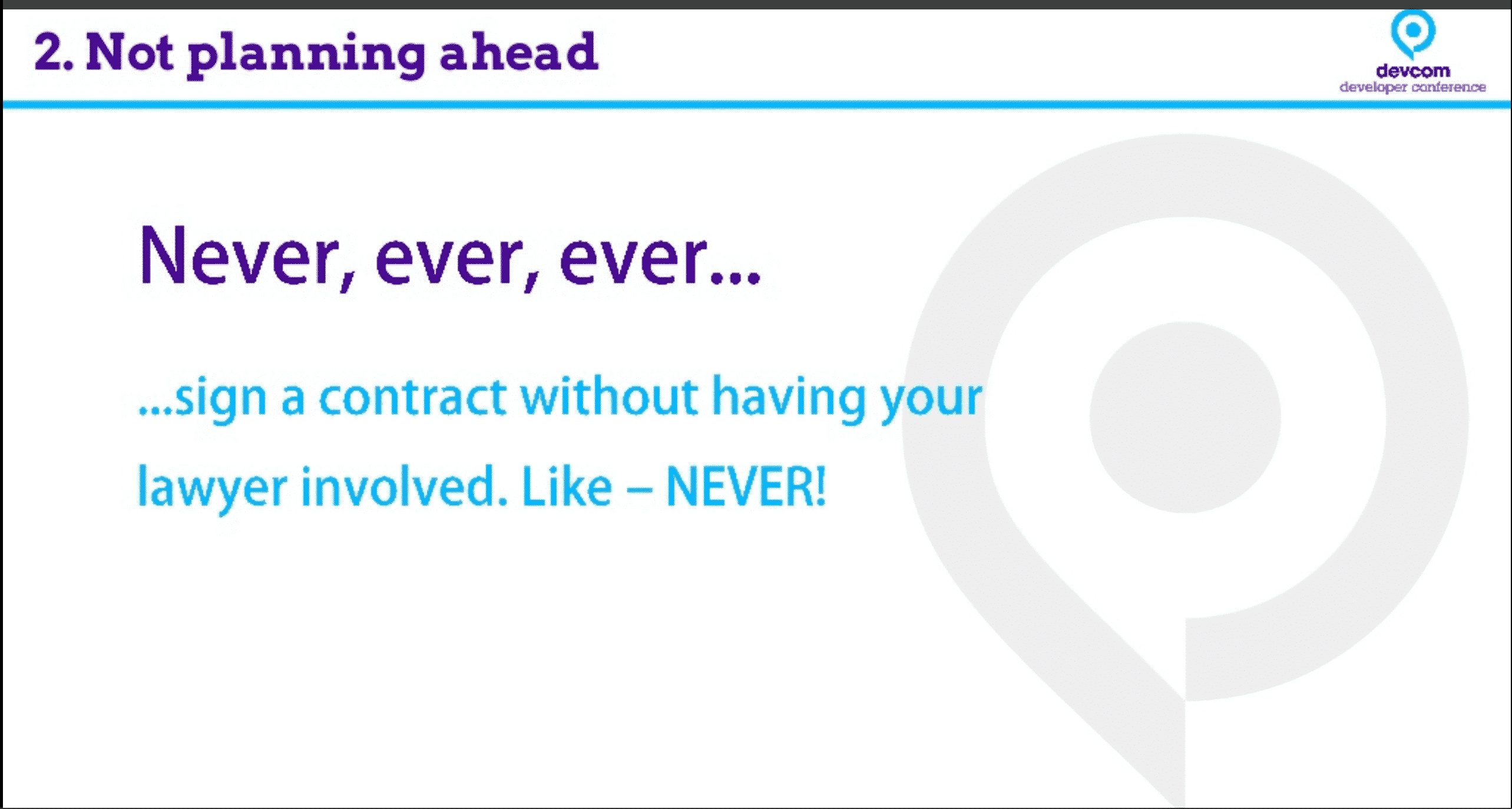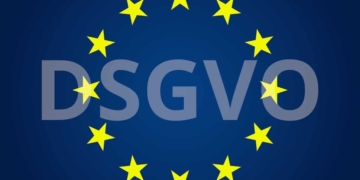I have been in the computer game industry for over 20 years and worked as a lawyer for over 12 years. Already because of my large network in industry, also internationally, and also the large number of publishing contracts, terms and conditions for online games and much more that I have seen during this time, I can say that the statement never to sign a contract without your own lawyer has looked over it, is simply extremely true.
Since you also get negative feedback, in the style of “Clearly, you just want to earn as a lawyer!”, you are always happy when other industry veterans hold the same opinion. For example, Ralf Adam, of Tiger Team Productions, whom most in the German industry are likely to know from numerous talks at events, recently gave a lecture at Devcom in Cologne entitled “10 surefire ways to screw up your studio” or “10 death-proof Ways to mess up your studio.” Point 2 under “Planning ahead” particularly pleases me:

The entire presentation can be found here on Slideshare.
This presentation and statement was simply too good not to mention it here in the blog and at the same time to introduce the 10 points of Ralf Adam readers of the blog.
And I can also support this statement with all my heart, and not only for reasons of winning the mandate as ‘Mr. Obvious”. Rather, this is precisely a point that is overly underestimated, because in the last decade I have simply seen countless opportunities in publishing or cooperation agreements that can break a game developer’s neck. These include, for example, clauses that
- result in a developer seeing hardly any money
- massively advantage the publisher
- make it virtually impossible to track claims worldwide
- are ineffective under European copyright law
- extreme problems with rightholders and social security institutions.
- no security for the construction of the studio (keyword branding, successors, add-ons)
- lead to extremely unfavourable tax situations
- make the insolvency of your own studio very likely, including the founders and the management
- competition law claim would result in
and much more.
It is true that often enough the publisher or partner does not even have a bad intention. And often enough contracts are also generally in order or in the context of expected sales or other circumstances economically justifiable. But then clients can also expect me not to make unnecessary changes that cost money unnecessarily.
So it is certainly worth a request. You can find more information about me and games law on this page.













































